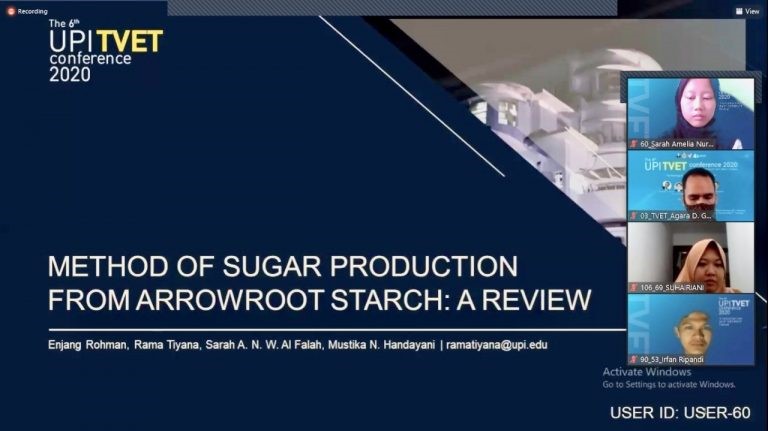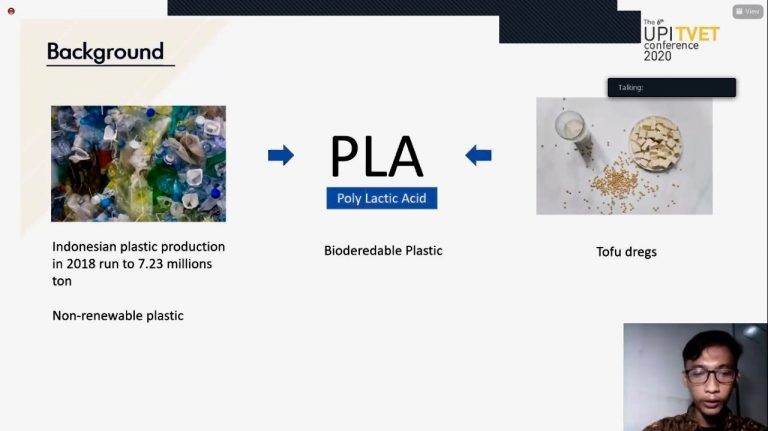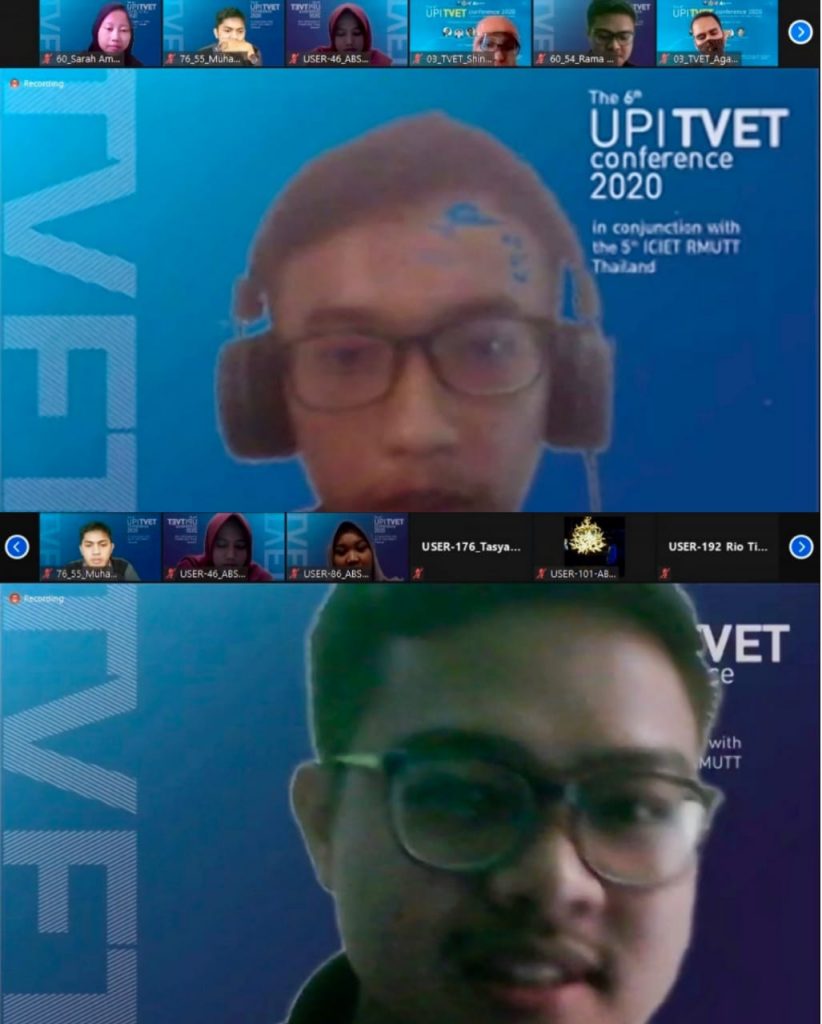Two PKM (Student Creativity Program) teams of the Agro-industrial Technology Education Study Program (PTAg), who won the 2020 PKM grant, presented their papers at the TVET international conference (Technical and Vocational Education and Training). The two teams were supervised by Mustika NH, S.TP., M.Pd., one of the teaching staff at PTAg. The presentation took place in a parallel session of the TVET international conference, which was held online on Wednesday, September 16, 2020.


The first PKM team consisting of Enjang Rahman, Rama Tiyana, and Sarah Amelia presented their paper entitled “Method of Sugar Production from Garut Starch: Overview.” During the conference, Rama, who represented his group as a speaker, revealed that arrowroot, which is a minor tuber that is less popular in society, has the potential to be developed as a raw material for making sugar, where Indonesia was the largest sugar importer in the world in 2017.
The method of making sugar-based on arrowroot tubers consists of steps of extraction, hydrolysis, purification, and crystallization. Rama and the team hope that the production of arrowroot-based sugar can be an alternative solution to increase production and meet domestic sugar needs so that it can help achieve Indonesia’s sugar self-sufficiency target by 2024.
The second PKM team, Mohammad Manarul Lubab, Zahratul Aflah, and Permata Maratussolihah presented their paper entitled “Polylactic Acid as Biodegradable Plastic Material Based on Tofu Dregs.” Lubab revealed that tofu dregs are abundant and untapped. Tofu dregs have the potential to be used as raw material for PLA (polylactic acid). PLA is a type of biodegradable polymer that can be applied as an environmentally friendly packaging. Lubab and the team hope that the use of tofu dregs as raw material for PLA can replace other raw materials such as sweet potato, corn, and cassava, which, if used in large quantities, are feared to disrupt food stability in Indonesia. It is also a solution to environmental plastic packaging problems.

